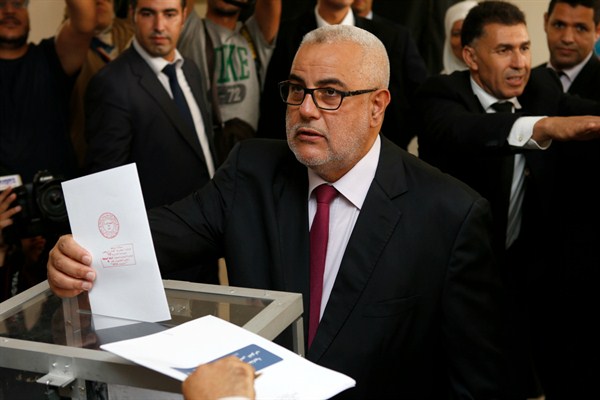Almost five months after Morocco’s leading Islamist party, the Justice and Development Party, or PJD, won a plurality in legislative elections, the country still does not have a government. In a region where Islamists in power are the exception—and whose political experiments, when they were in power, were short-lived—the PJD appeared well on its way toward a second term at the helm of the Moroccan government. But unlike past years, the task of building a coalition has proven difficult, if not impossible at this point. The usual coalition parties, all too eager in the past to join the government in order to extract as much patronage as possible, have so far either refused to take part or just ignored calls to join from Abdelilah Benkirane, the PJD leader and the prime minister-designate.
These parties’ posturing is a function of the Moroccan regime’s desire to prevent the PJD from enjoying the benefits of its second consecutive electoral victory. This political “blockage,” as Moroccans call it, represents an attempt of the makhzen—the ensemble of the political state apparatus and regime—to sabotage the PJD’s efforts to form a government coalition, resulting in the current political crisis.
Yet again, the regime is firmly committed to reconfiguring the Moroccan political scene. At the heart of this ongoing effort is the Party of Authenticity and Modernity, or PAM—which has close links to the palace and was founded nearly a decade ago to offset the PJD—and a recently formed royalist opposition bloc led by the National Rally of Independents, or RNI. The RNI-led bloc also includes the Socialist Union of Popular Forces and the Constitutional Union, two parties that the PJD has recently refused to allow into any coalition talks, perpetuating the deadlock. The political impasse in Morocco is a further signal that the palace’s experiment of allowing the PJD to assume nominal governmental power, undertaken after the 2011 Arab uprisings, is over.

